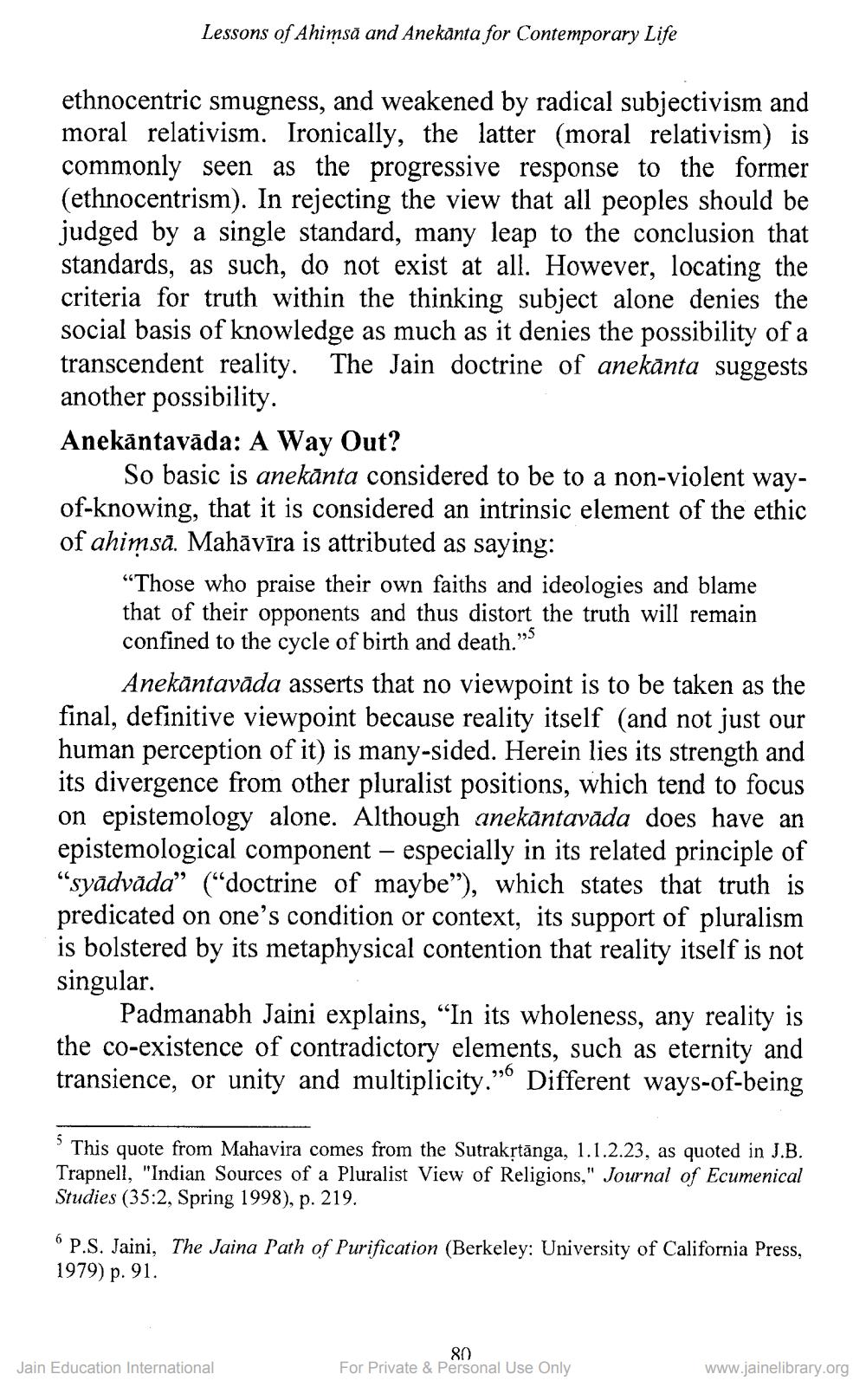________________
Lessons of Ahimsă and Anekānta for Contemporary Life
ethnocentric smugness, and weakened by radical subjectivism and moral relativism. Ironically, the latter (moral relativism) is commonly seen as the progressive response to the former (ethnocentrism). In rejecting the view that all peoples should be judged by a single standard, many leap to the conclusion that standards, as such, do not exist at all. However, locating the criteria for truth within the thinking subject alone denies the social basis of knowledge as much as it denies the possibility of a transcendent reality. The Jain doctrine of anekānta suggests another possibility. Anekāntavāda: A Way Out?
So basic is anekanta considered to be to a non-violent wayof-knowing, that it is considered an intrinsic element of the ethic of ahimsā. Mahāvīra is attributed as saying:
“Those who praise their own faiths and ideologies and blame that of their opponents and thus distort the truth will remain confined to the cycle of birth and death."
Anekantavāda asserts that no viewpoint is to be taken as the final, definitive viewpoint because reality itself (and not just our human perception of it) is many-sided. Herein lies its strength and its divergence from other pluralist positions, which tend to focus on epistemology alone. Although anekantavāda does have an epistemological component – especially in its related principle of “syādvåda” (“doctrine of maybe”), which states that truth is predicated on one's condition or context, its support of pluralism is bolstered by its metaphysical contention that reality itself is not singular.
Padmanabh Jaini explains, “In its wholeness, any reality is the co-existence of contradictory elements, such as eternity and transience, or unity and multiplicity.” Different ways-of-being
This quote from Mahavira comes from the Sutrakrtānga, 1.1.2.23, as quoted in J.B. Trapnell, "Indian Sources of a Pluralist View of Religions," Journal of Ecumenical Studies (35:2, Spring 1998), p. 219.
°P.S. Jaini, The Jaina Path of Purification (Berkeley: University of California Press, 1979) p. 91.
Jain Education International
80 For Private & Personal Use Only
www.jainelibrary.org




